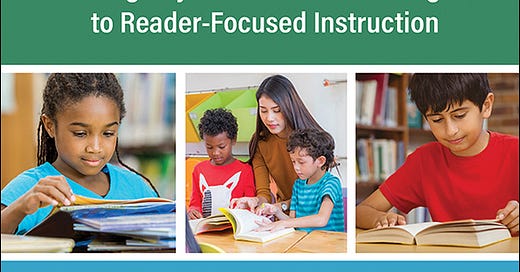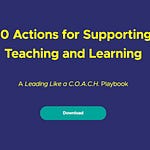This podcast episode is an audio recording from a recent conversation with Peter Afflerbach, author of Teaching Readers (Not Reading): Moving Beyond Skills and Strategies to Reader-Focused Instruction (Guilford, 2022).
Several community members were able to join us and ask questions of Peter. We discussed a variety of topics related to his book, including:
Peter’s influences as a reader, teacher, and researcher
Paying attention to and appreciating the different factors for teaching readers
Beginning with the affective and conative resources when teaching readers
The importance of administrative support for teachers to have time to collaborate
What writers such as Emily Hanford and Natalie Wexler get wrong in their reporting
Time stamps for prepared questions
0:30 - Peter’s bio
2:15 - Q1: “Which individuals influenced you as a researcher and as a teacher?”
7:00 - Q2: “From your book, what do you regard as the most important professional contribution of yours or colleagues to the field of literacy instruction?”
10:00 - Q3: “Have you always prioritized teaching readers over teaching reading? Or has this been a change for you over the years - an evolution?”
12:00 - Q4: “Any factors that a teacher might consider focusing on first when shifting toward teaching readers?”
16:20 - Q5: “What are some important trends occurring in education that we should be paying attention to?”1
18:00 - Open Q & A with attendees begins.
Key quotes
“The best classrooms are the ones where we pay attention to individual differences.”
“Literacy is important but it is not the end point; it’s the tool that kids use.”
“Science revolves around demonstrable findings and replicating them.”
Recommended people and resources
Paul Thomas (@plthomasEdD)
Maren Aukerman, Literacy Research Association (https://literacyresearchassociation.org)













Share this post